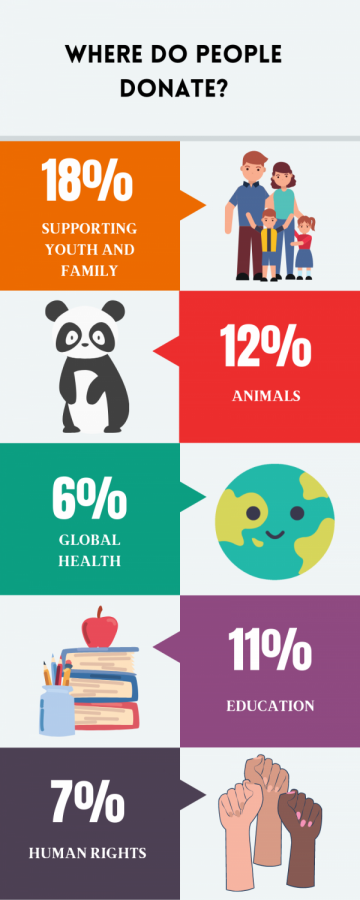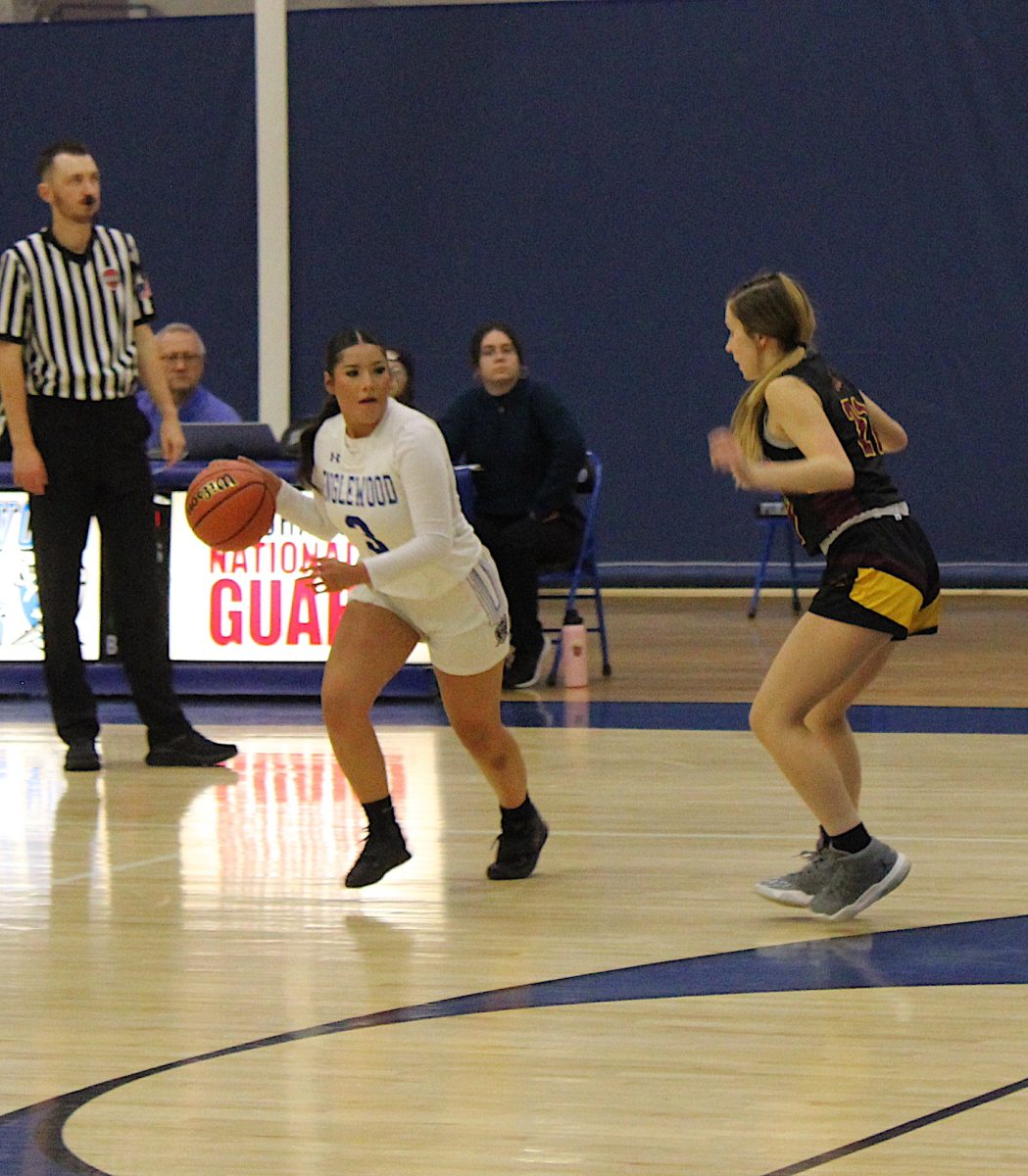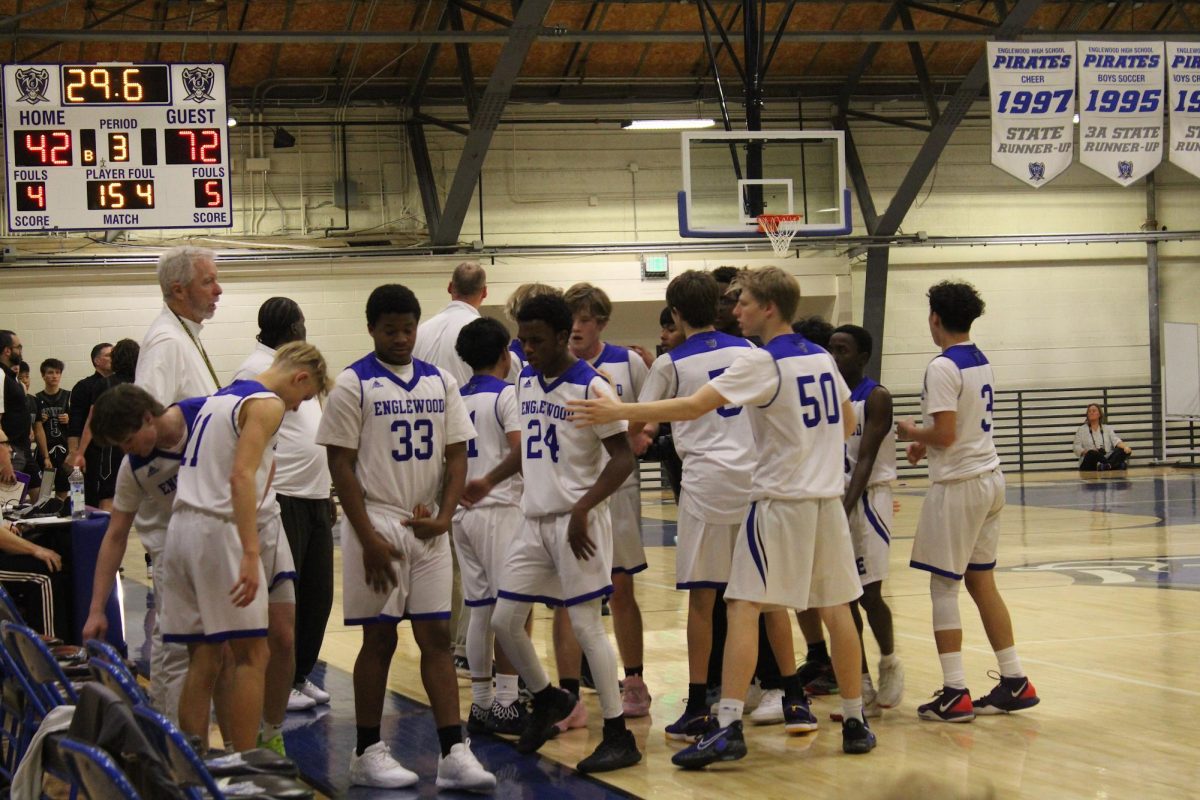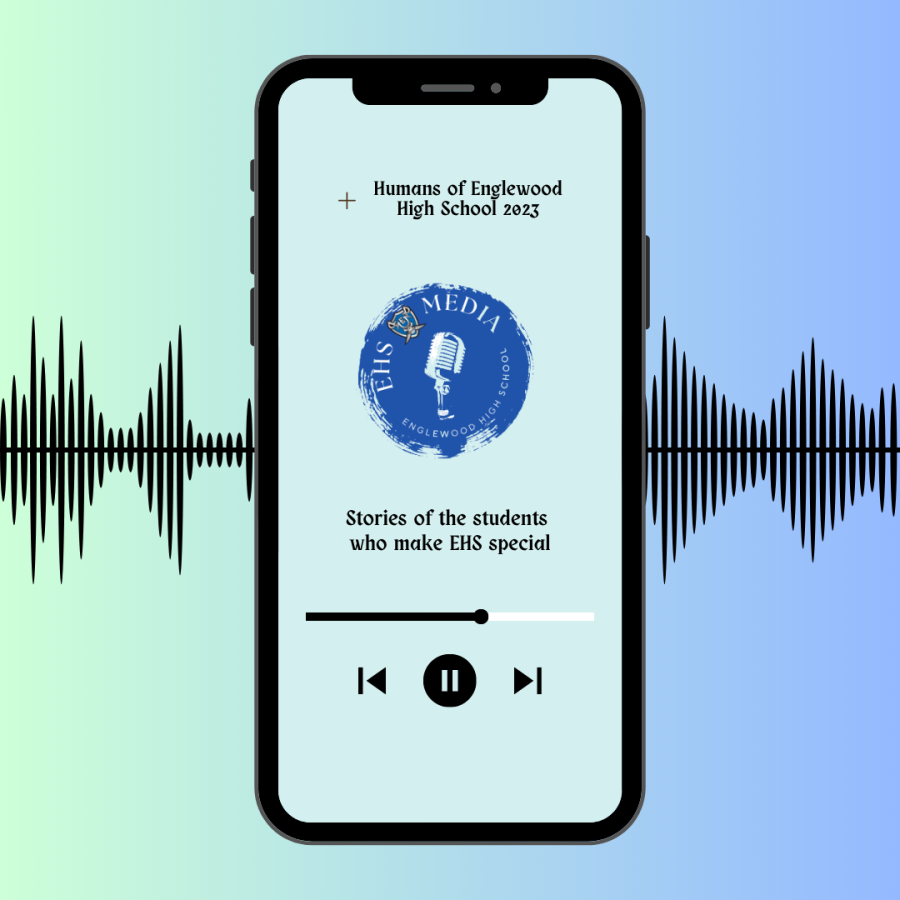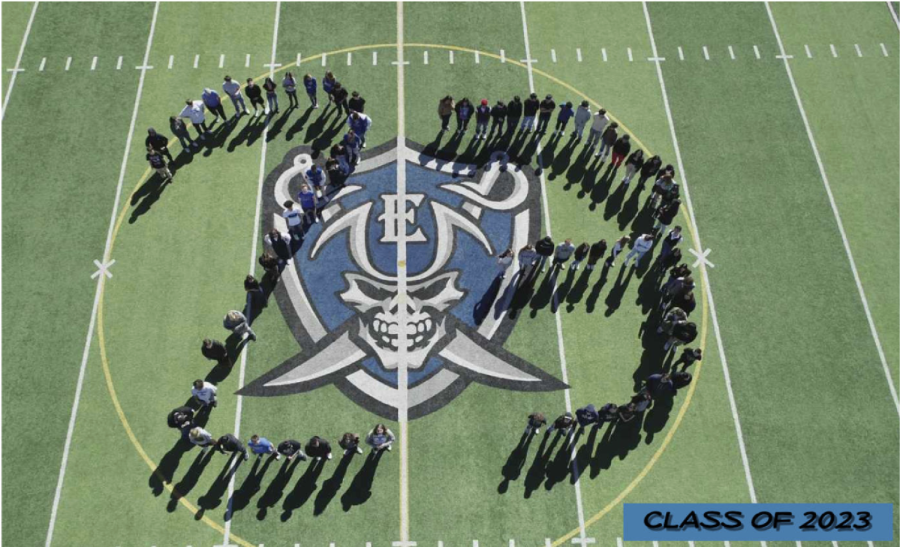Know your rights – The Fuss About Title IX
A Golden Jubilee-Celebrating 50 years
September 9, 2022
Junior Tracy Jennings plays basketball, tennis, and soccer for Englewood High school, “For me, it feels like I’m in heaven like I’m just flowing and I’m really just going out there and just having fun just being able to show off that girls can do it boys can do and just like feel in the moment. I just feel so good.”
She shouldn’t take that for granted. It hasn’t always been that way. Girls have not always been able to enjoy sports equally to their male counterparts.
Volleyball, softball, girls tennis, and girls soccer. These are normal high school activities for girls nowadays. But that wasn’t always the case. For a long time girls were not encouraged to take part in boy-like activities. Girls, for the longest time, have been assigned a secondary role in society and they have been constantly belittled by their biological counterparts. With the screams and cries of women who had grown tired of the discrimination, various laws have been passed to eradicate prejudice and differentiation against women. Representative Edith Green, chair of the Subcommittee on Education, held hearings on discrimination against women and introduced legislation in the House on May 11, 1972.
Title IX, formally known as the Education Amendments of 1972, “is a federal amendment that prohibits sex-based discrimination in any school or any other education program that receives funding from the federal government.” This law has become the reason high school girls’ sports teams have the same access to opportunities available to the boys. The amendment required schools to meet three standards: proportionality, progress, and satisfying interests.
Since the amendment was passed, most activities, such as sports events in high school, which only allowed male participation have been easily accessible to females as well.

Source: https://nfca.org/easyblog/womens-history-month-great-time-to-reflect-on-softballs-rich-history (Katelyn Berry)
“Title IX has been incredibly impactful and transformative in virtually all aspects of our society. It is easy to forget that before Title IX was signed into law in 1972, no law specifically prohibited discrimination based on sex in education,” said Ryan Cowell, the Executive Director of Human Resources and Talent Development for Englewood Schools.
Cowell says before Title IX, you could be excluded from enrollment in schools based on gender, “Title IX made all of these inequities illegal in federally funded educational institutions and the impact has been profound. We often hear about the importance of Title IX for athletics, but the impact extends far beyond that. It has been instrumental in reshaping our society. For example, in 1970, before Title IX, female enrollment in medical school was 9.6%. As of 2019, female enrollment in medical school was 50.5%.” He says it can’t be overstated how instrumental Title IX has been.

If you would ask an individual before Title IX came into play, they may not have understood that they should have equal access to materials. Now our athletes, I think, would be more vocal about the things that they’re missing out on.
— Coach Erika James
Coach Erika James, who started engaging in sports in second grade and oversees the girls´ tennis and volleyball teams, has not felt like “there was any inequality” in her lifetime. She says her mom was a coach from the mid-90s until about 2020, “So whatever equipment was available to the boys was available to the girls and I never had a problem where I didn’t have access to those materials.”
Coach James says she understands that her perspective would have been different from someone facing inequity before Title IX, “If you would ask an individual before Title IX came into play, they may not have understood that they should have equal access to materials. Now our athletes, I think, would be more vocal about the things that they’re missing out on. And they would be able to see the differences. Once in a while, they do say in practice, that it doesn’t seem fair. But beyond that, we encourage them to take those conversations to the correct people.”
The correct person at Englewood High school is Athletic Director Nate Smith. He said there is a difference of only two students between the girls’ and boys’ sports teams. He met recently with members of the girls’ volleyball team to talk about Title IX. During that conversation, we learned that most of the girls are satisfied with the effort the school district is putting to make sports something that is fun to participate in.
However, according to Smith, the district recognizes there are a few things that the school can do better in terms of getting the word out about girl’s teams, ¨One of our big department goals that I’ll be meeting with the coaches on next week is just how we promote ourselves and how we advertise.”
As of now, the school feels the girls’ teams are not being advertised enough. More people attend games for the boys’ team than the girls’. Some students and community members genuinely may not have any interest in the girls playing but others may not know if there is a game. Either way, the school is looking to advertise the various teams. Also, the school will be taking into consideration the ideas of the female athletes themselves when making further decisions about the welfare of the teams. This will be done by using feasibility surveys to garner the ideas of more female student-athletes.
As for Tracy Jennings, this female athlete does what she can to get more participation from females, “I just say go out there. Put yourself out there. Have fun. Just be yourself. Like you’ll find your second calling.”















